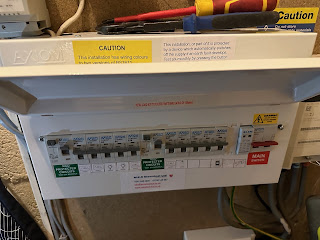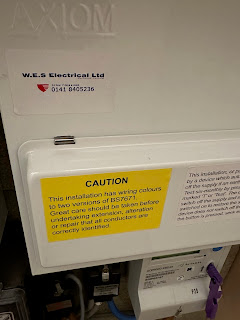Expert EICR Testing in Glasgow, Renfrew, Paisley & the West of Scotland
Provided by WES Electrical and Certificates 4 Landlords, based at 3 E Fulbar Street, Renfrew, PA4 8PH. For emergency or general electrical services, call 0141 840 5236.
What is EICR Testing?
An Electrical Installation Condition Report (EICR) is a formal document produced after an assessment of the electrical installation within a property. It details the condition of the electrics, highlights any defects or deviations from regulations, and provides recommendations to ensure safety and compliance. Whether you're a landlord, homeowner, or business owner, having regular EICR inspections is essential for protecting lives and property.
At WES Electrical and Certificates 4 Landlords, we specialise in EICR testing throughout the West of Scotland, including Glasgow, Paisley, Renfrew, Greenock, and surrounding areas. Our qualified electricians ensure that every inspection is thorough, honest, and fully compliant with the latest Scottish regulations.
Why Choose Us for EICR Testing?
- Experienced, fully qualified electricians
- Fast turnaround times and competitive pricing
- Compliant with current landlord and homeowner safety laws
- Trusted by hundreds of landlords and letting agents across Scotland
- Available for emergency electrician call-outs across Glasgow and Paisley
We're proud to be based at 3 E Fulbar Street, Renfrew, PA4 8PH, and our location allows us to offer quick response times across the entire region. Find us on Google Maps.
Who Needs an EICR?
Landlords are legally required to have an EICR carried out every 5 years or at change of tenancy. It’s not just a legal requirement—it’s a duty of care to tenants.
Homeowners benefit from EICRs by catching potential hazards before they become costly or dangerous.
Businesses and Commercial Properties also require regular testing under the Electricity at Work Regulations 1989.
No matter the size or age of your property, if it contains electrical systems, it needs checked. WES Electrical and Certificates 4 Landlords provide peace of mind through precise, responsible EICR inspections.
Additional Electrical Services
In addition to EICR testing, we provide a full suite of electrical services across Glasgow, Renfrewshire, and beyond:
- Full and partial rewires
- Electrical fault finding
- PAT testing (Portable Appliance Testing)
- Fuse board upgrades and installations
- Lighting installations, socket repairs, and more
Whether you’re dealing with flickering lights, tripping circuits, or an outdated installation, we’ve got the skills and tools to fix it quickly and safely. Need an emergency electrician in Glasgow or Paisley? Call us today at 0141 840 5236.
Areas We Cover
From our base in Renfrew, we’re ideally located to serve the entire West of Scotland. Our most popular service areas include:
- Glasgow – including the West End, Southside, Shawlands, and Finnieston
- Renfrew – including Bishopton, Erskine, and Inchinnan
- Paisley – including Ralston and Glenburn
- Greenock, Johnstone, and the wider Inverclyde area
If you're looking for EICR in Glasgow, landlord certificates in Glasgow, EICR testing in Paisley, or EPC certificates in Glasgow, we've got you covered.







